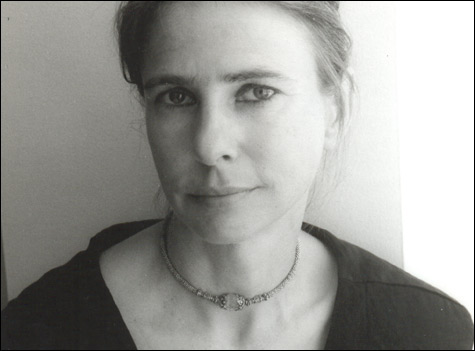
SYNCOPATED: Lionel Shriver's The Post-Birthday World is a big, roomy English novel with a French heart. |
In The Unbearable Lightness of Being, Milan Kundera struck upon an idea to give every cheating heart a moment’s pause. Since none of us could have nine lives — or even two — Kundera imagined that, even if we could go back in time, we’d be bound to make the same decisions. Nietzsche called this the idea of eternal return. “In the world of eternal return,” Kundera wrote with sardonic understatement, “the weight of unbearable responsibility lies heavy on every move we make.”
Lionel Shriver is a slightly less cosmic soul, and she’s willing to believe that we could indeed have two lives. In The Post-Birthday World, she bestows this gift upon her heroine, a 42-year-old expatriate children’s-book illustrator named Irina McGovern. One half of the book imagines how Irina’s life might spiral forward if, after a night of drinking and snooker playing in 1990s London, she were to kiss her boyfriend’s rakishly good-looking best friend, Ramsey. The other half proceeds on the assumption that Irina and Ramsey don’t have their furtive late-night smooch and Irina simply returns home titillated, but chastened, to Lawrence, the man she’s been living with for 10 years. Their life of comfortable domesticity, regular, satisfying sex, and familiar routines suddenly becomes a blessing. Lawrence doesn’t know how close to infidelity she came.
But just in case the reader is curious, Shriver toggles back to the alternative universe to show how Irina’s life would have unfolded. And so we leapfrog from the “if” to the real, The Post-Birthday World etching out a portrait of a lady in syncopated fashion. It feels like a big roomy English novel, with a French heart. “For chances are that at some point along the line you will hold in your hands another person’s heart,” Shriver writes. “There is no greater responsibility on the planet. However you contend with this fragile organ, which pounds or seizes in accordance with your caprice, will take your full measure.”
It certainly takes the measure of Irina. As she did with motherhood in We Need To Talk About Kevin, Shriver has telescoped in so closely to the relationship with Lawrence that we can see its every pixilated component. In her cheating life, Irina becomes alive, can’t eat; she feels arrogant and powerful. These slight alterations in character pull the rug of respect out from beneath Lawrence — even before she confesses. “When he didn’t think she was looking, she had more than once caught an expression on his face like that of a small boy who had been abandoned by his mother at Disney World.”
Much as it tugs at the heartstrings, one can sympathize with the cheating Irina. Next to Lawrence — with his wonky policy talk, his popcorn before dinner — Ramsey is exciting. He is not dependable, but he’s sexy; the man probably can’t pay his bills on time, but he enjoys the money he spends — as his clothes, his Jag, and the meals he eats out attest.